Agriculture Ministry Awards 33 Rural Development Programme Contracts
ZAGREB, 13 April 2022 - The Agriculture Ministry on Wednesday awarded 33 contracts worth over HRK 65 million from the Rural Development Programme.
Minister Marija Vučković said the aid focused on those transforming agriculture by increasing productivity and capacity as well as using new technologies.
We are also focused on improving living conditions in small local communities, she added.
Higher food prices
Asked by the press about higher food prices, Vučković said inflation started being higher than expected last year already and that the government responded promptly, notably in cattle breeding, which she said was the first sector to feel the inflation in terms of fodder price hikes.
"Inflation has continued this year and we can no longer say that it is transitory", she said, adding that inflation has picked up also due to the war in Ukraine.
Inflation "is first and foremost driven by energy prices", but it manifests considerably in food prices as well, the minister said.
She recalled that the government adopted a set of measures worth HRK 4.8 billion to mitigate energy price hikes and said that, if necessary, it would adopt additional measures to ease the blow to purchasing power and to reduce the risk of any kind of poverty.
(€1 = HRK 7.5)
For more, check out our lifestyle section.
Government Presents 52 Grant Agreements for Investment Projects
ZAGREB, 23 March 2022 - Prime Minister Andrej Plenković on Wednesday presented 52 grant agreements for investment in public water supply and drainage projects and in kindergartens, community centres and fire stations in rural areas. The total value of the agreements is HRK 565 million.
The agreements were awarded under the EU Recovery and Resilience Facility through the National Recovery and Resilience Plan 2021-2026.
Of the 52 agreements, 25 relate to public water supply and drainage systems. Their total value is HRK 394 million, of which HRK 241 million is provided by the EU in the form of grants. The other 27 agreements were awarded under Measure 7 in the Rural Development Programme for the construction of kindergartens, community centres, sports facilities and fire stations. Their total value is HRK 155 million, but the total value of these investments exceeds HRK 171 million.
"The point is that we have joined the National Recovery and Resilience Plan, as a new, additional instrument to speed up the economic development of Croatia, with activities under Measure 7, which has a much wider reach," Plenković said, adding that the purpose of this was to improve the quality of life and infrastructure in rural areas.
(€1 = HRK 7.5)
For more, check out our dedicated politics section.
Over 2,000 Jobs Saved Thanks to Financial Instruments for Rural Development
ZAGREB, 3 Jan 2022 - Over 2,000 jobs have been saved and 54,000 animals purchased thanks to financial instruments under the Rural Development Programme, the Ministry of Agriculture said on Monday.
fi-compass, the European Commission's platform for advisory services on financial instruments, is preparing a brochure on a case study of the Croatian micro and small loan scheme as an example of good practice for other EU members to follow. This is the result of positive ratings by end-users and the successful use of funding from financial instruments of the Rural Development Programme which Croatian farmers used in 2019 more than farmers in any other EU member state, while in 2020 the primacy was taken over by Poland and Croatia was second, the ministry said.
The ministry said that the total amount of funding from the financial instruments had increased several times, from the initial HRK 536 million to HRK 782 million, with HRK 437 million disbursed to 1,216 end users by the end of October 2021.
"Thanks to the projects supported by the financial instruments, more than 54,000 animals have been purchased and more than 2,300 jobs have been opened or preserved," the ministry said.
It noted that micro and small loans for rural development have been available under the Rural Development Programme since 2018, adding that 83 percent of their users are micro-businesses and 21 percent are young farmers. In order to contribute to generational renewal, the new program period 2023-2027 will make it possible for young farmers to buy land without any limits in the total value of the investment.
In December 2021, the ministry carried out a survey among 575 respondents, including some of the present end-users of financial instruments, and they rated the system of implementing financial instruments as very positive. The interest rate, which is 0.46 percent on average for all loans, was given the highest rating by 79 percent of users, while nearly a third of respondents said they had applied for a financial instrument and had their application granted in 92 percent of cases.
For more, check out our politics section.
Discovering Authentic Croatia's Secrets With Seoski Tourism
November 4, 2021 – Village tourism or countryside tourism - Seoski tourism in Croatia - offers authentic, traditional experiences. Aleksandra Kuratko, secretary of Udruga ruralnog turizma Hrvatske (Croatian Rural Tourism Association) tells us more about it, and their work to help facilitate it
Croatia's visitor offer is evolving and expanding. There are exciting aspects of authentic Croatia to be discovered. Away from the beach, villages inland often look remarkably similar to how they did one hundred years ago. There, crops are grown and produce made in ways passed down through generations of families. And, in some lucky instances, these family farmers are willing to open their doors, invite you inside and show you how they live.
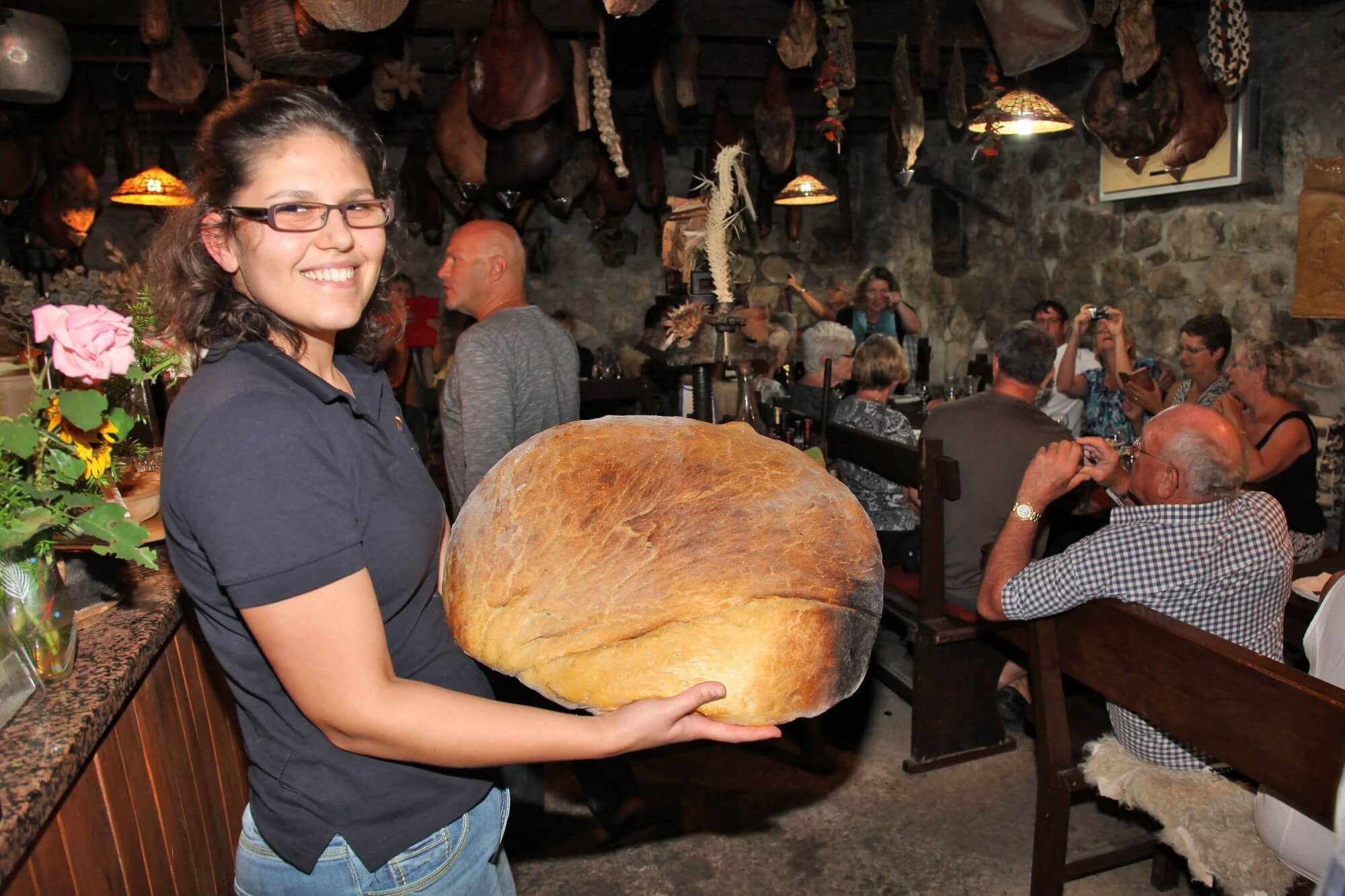 Bread from the peka at Agroturizam Antunović on Pelješac
Bread from the peka at Agroturizam Antunović on Pelješac
Seoski Tourism – translated as either village tourism or countryside tourism – is just that. Family farms that offer hospitality. These are some of the most homely and most welcoming accommodation experiences you can have in Croatia. Offering sights and sounds, tastes and flavours that you can't find anywhere else, visits or stays in Seoski Tourism places have long been loved by locals for weekend breaks or holidays outside peak summer. But, increasingly, these authentic Croatia experiences are being discovered by international visitors.
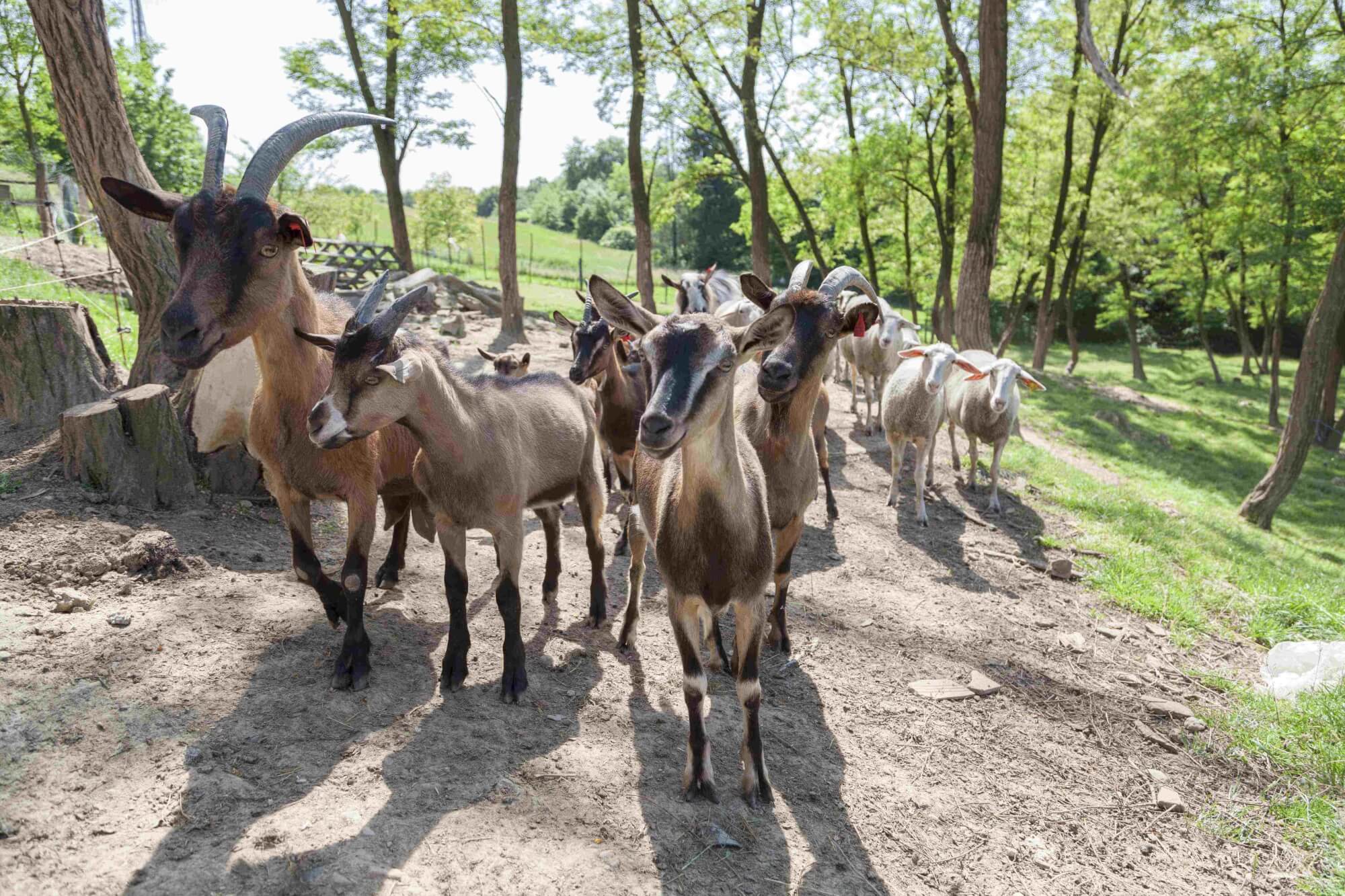 Moslavina goats at Kezele family farm © Davor Konjikušić
Moslavina goats at Kezele family farm © Davor Konjikušić
One institution trying to facilitate the growth in interest is Udruga ruralnog turizma Hrvatske - Croatian Rural Tourism Association. Since it was formed in 2016, they have tried to bring together Croatia's family farm hosts, to promote them and educate them, and to build bridges between these independents and tourist boards, tourist agencies, educators and even the wider world outside Croatia.
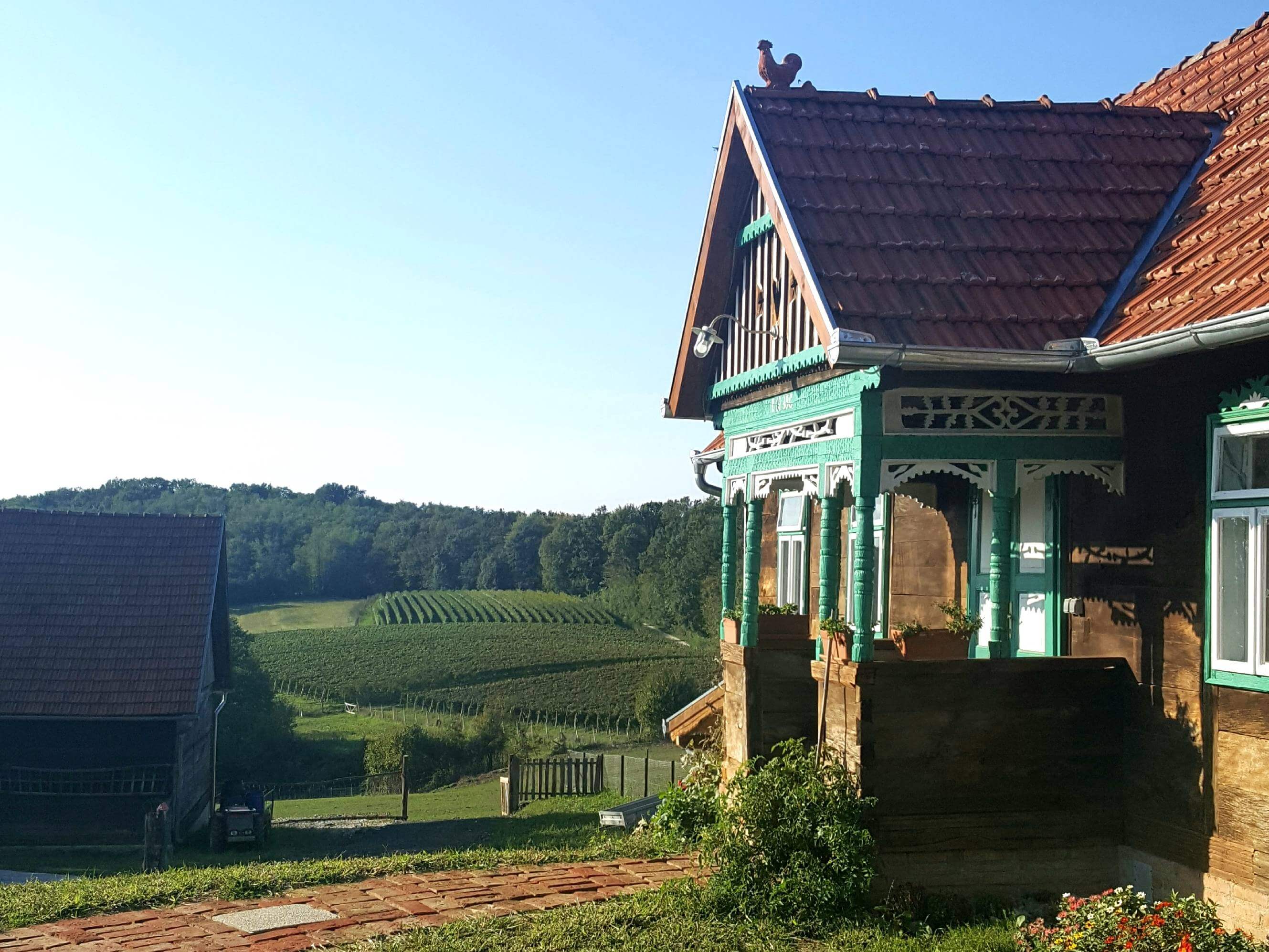 Seoski turizam Kezele in Šumećani, on the border of Zagreb County and Bjelovar Bilogora County © Davor Konjikušić
Seoski turizam Kezele in Šumećani, on the border of Zagreb County and Bjelovar Bilogora County © Davor Konjikušić
Based in Ivanić-Grad, Zagreb County, the Croatian Rural Tourism Association is currently touring the length and breadth of the country, holding workshops with as many Seoski Tourism family farms that will come. And if the farmwork doesn't allow them free time, then they can attend Croatian Rural Tourism Association workshops online.
On the eve of the association's online Seoski Tourism workshops for Central Croatia and Slavonia, TCN interviewed Aleksandra Kuratko, secretary of Udruga ruralnog turizma Hrvatske, to find out more about Seoski Tourism in Croatia.
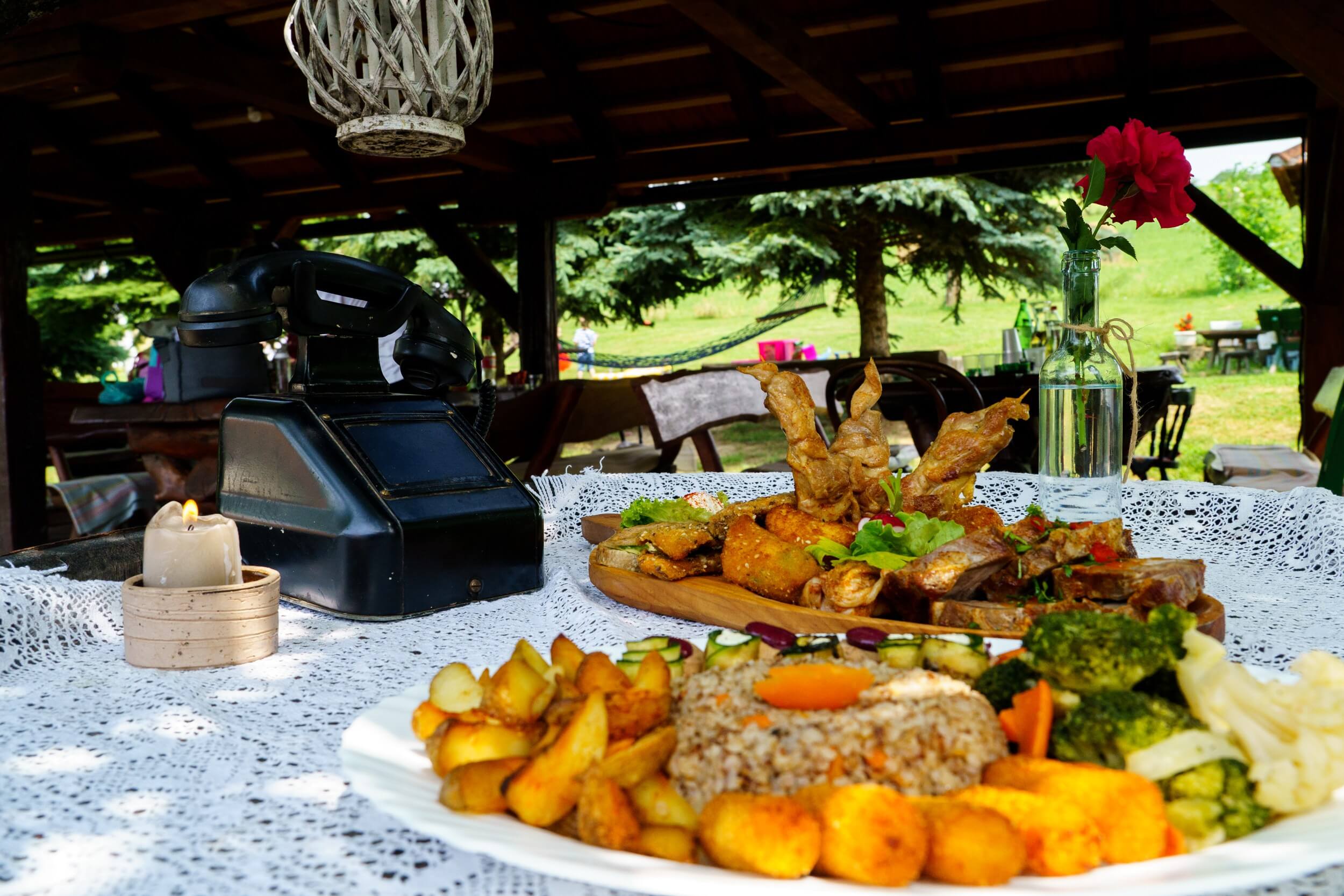 Prigorje specialties at Rakić family farm
Prigorje specialties at Rakić family farm
My name is Aleksandra Kuratko and I am secretary of Udruga ruralnog turizma Hrvatske. As an association, we are 5 years old.
We have 35 members, most of whom are service providers in what we call Seoski Tourism. We also have several tourist boards and two educational institutions as members.
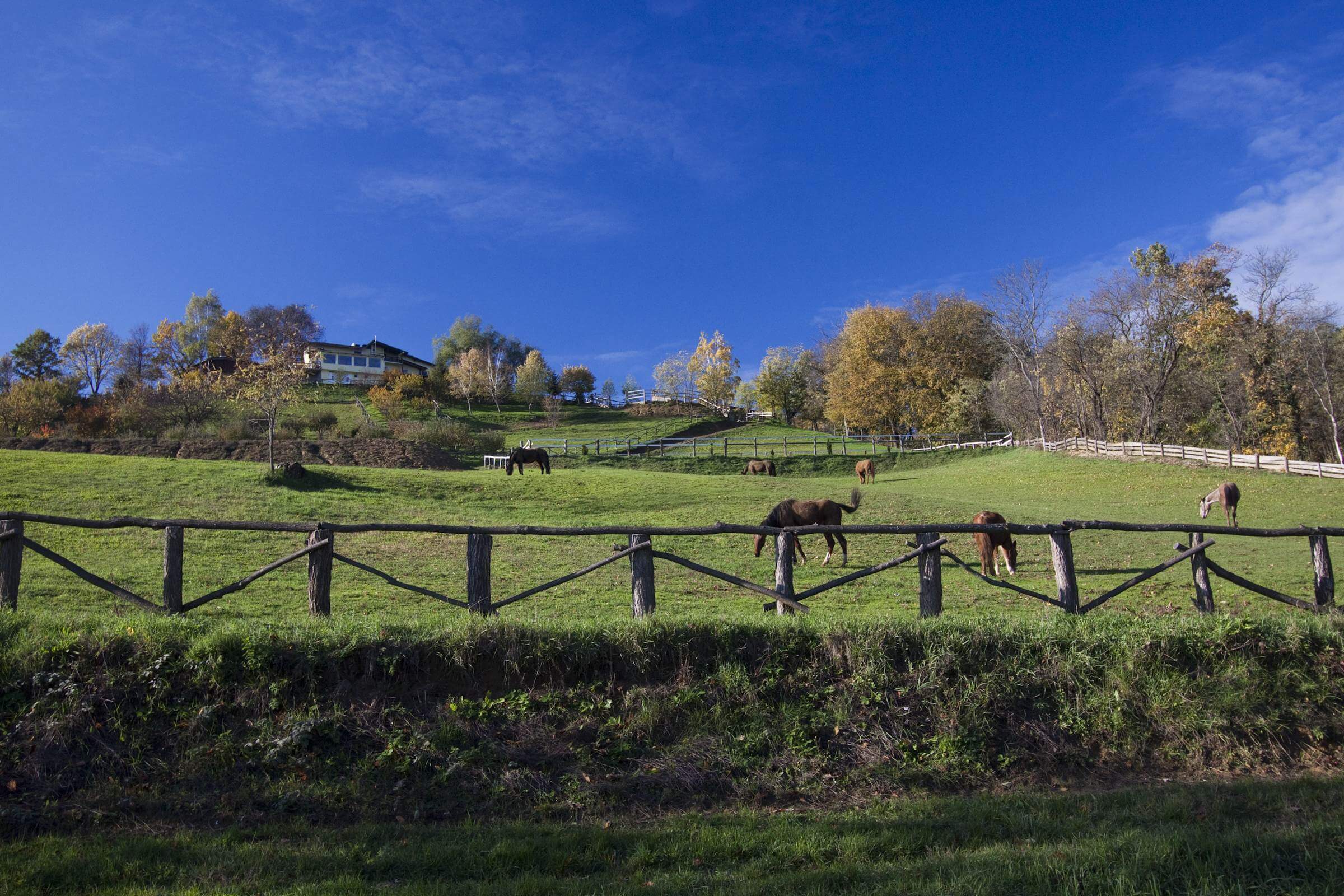 Bilogora horses in autumn at Agroturizam Na malenom brijegu © Vladimir Vlajinić
Bilogora horses in autumn at Agroturizam Na malenom brijegu © Vladimir Vlajinić
Seoski tourism is not quite the same as rural tourism, because rural tourism is many different types of tourism that happen in rural areas. Seoski tourism - which you might translate as village tourism - is quite specific. We assemble people who work in agriculture and who, at the same time, are also offering hospitality. In English, you might call them Farm Stays. Or Agro-tourism – a merging of agriculture and tourism.
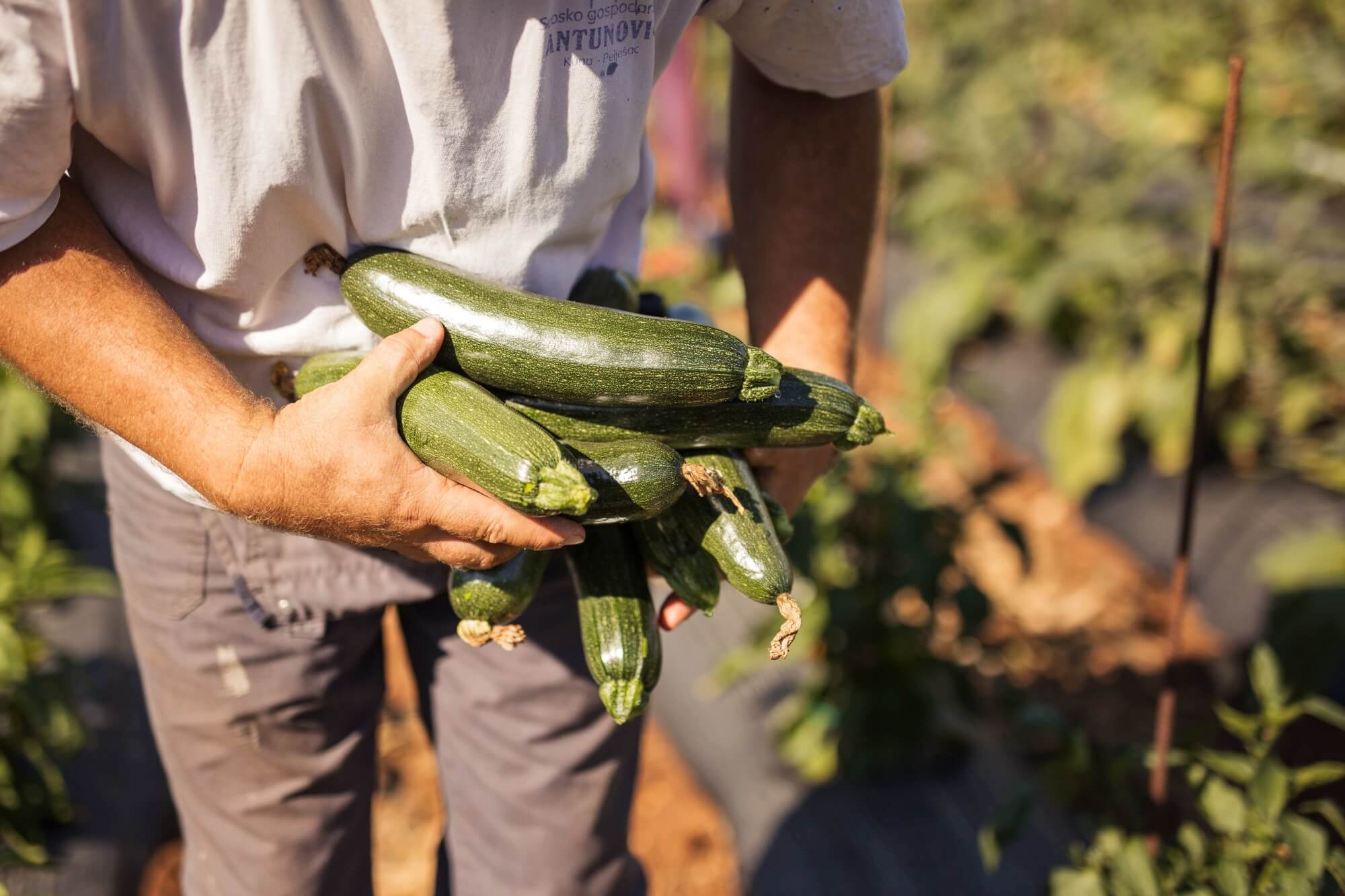 Fresh vegetables at Agroturizam Antunović on Pelješac
Fresh vegetables at Agroturizam Antunović on Pelješac
People who work on agricultural estates often take care of local cultural heritage. For example, they might maintain and renew traditional wooden or stone houses. Many also have etno collections, in which they preserve different objects from their region. Some of these objects might have been used in agriculture and households hundreds of years ago. So, they are preserving the cultural heritage of Croatian villages. This is what we call material cultural heritage. But, there's another kind.
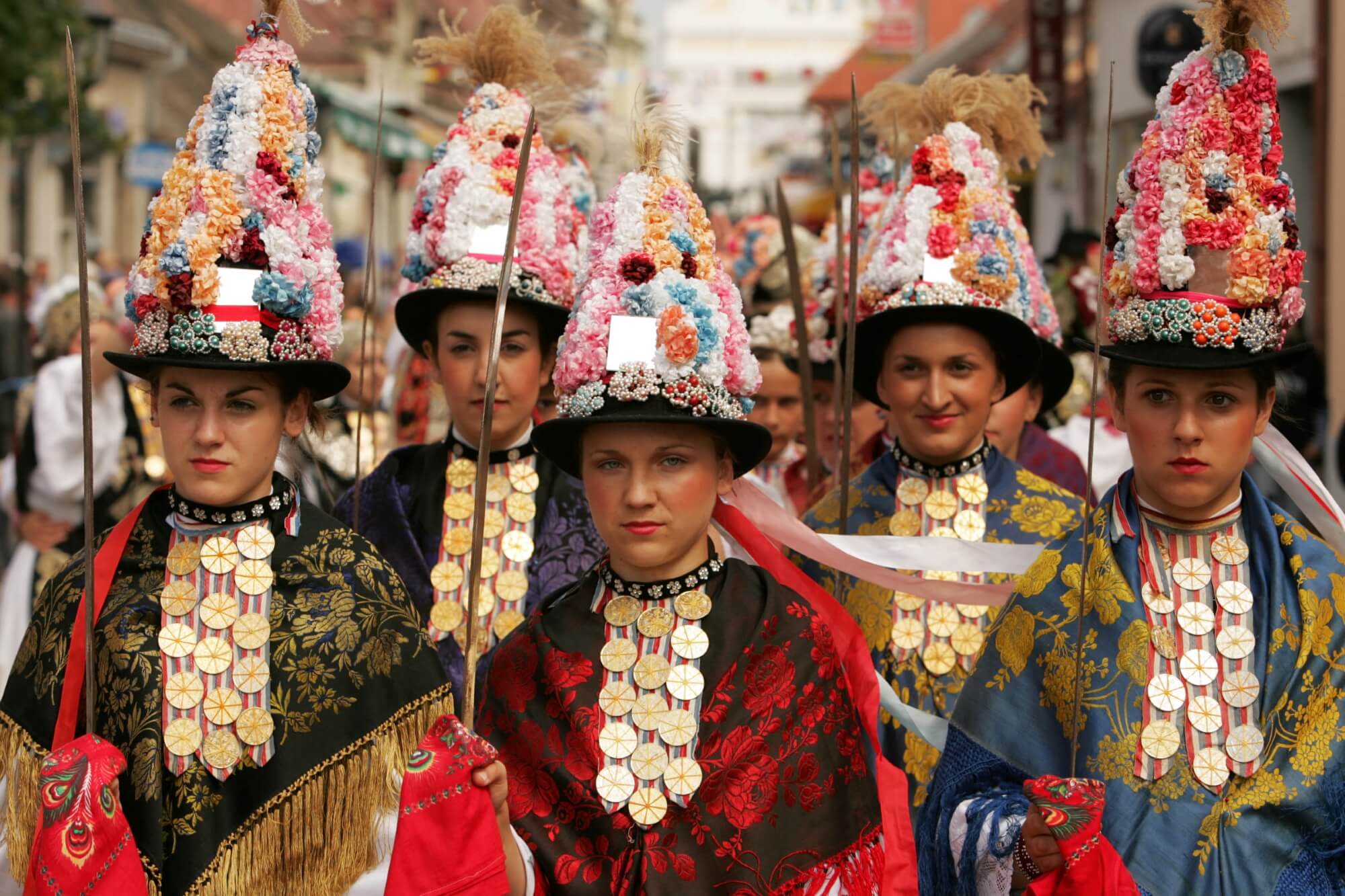 Cultural heritage preserved in one Slavonian village © Mario Romulić
Cultural heritage preserved in one Slavonian village © Mario Romulić
Non-material cultural heritage is also a part. That might be preserving old recipes of traditional, regionally-specific dishes. Or, it might be showcasing the songs and dance of local music.
We are currently running a project which is supported by the Croatian Ministry of Tourism and Sports in which we hold 37 Seoski Tourism workshops in the field all over Croatia. There will also be around 15 online workshops. The workshops are aimed at colleagues who currently operate in Seoski Tourism – they work in agriculture and offer hospitality. Also invited are local tourist boards and local action groups.
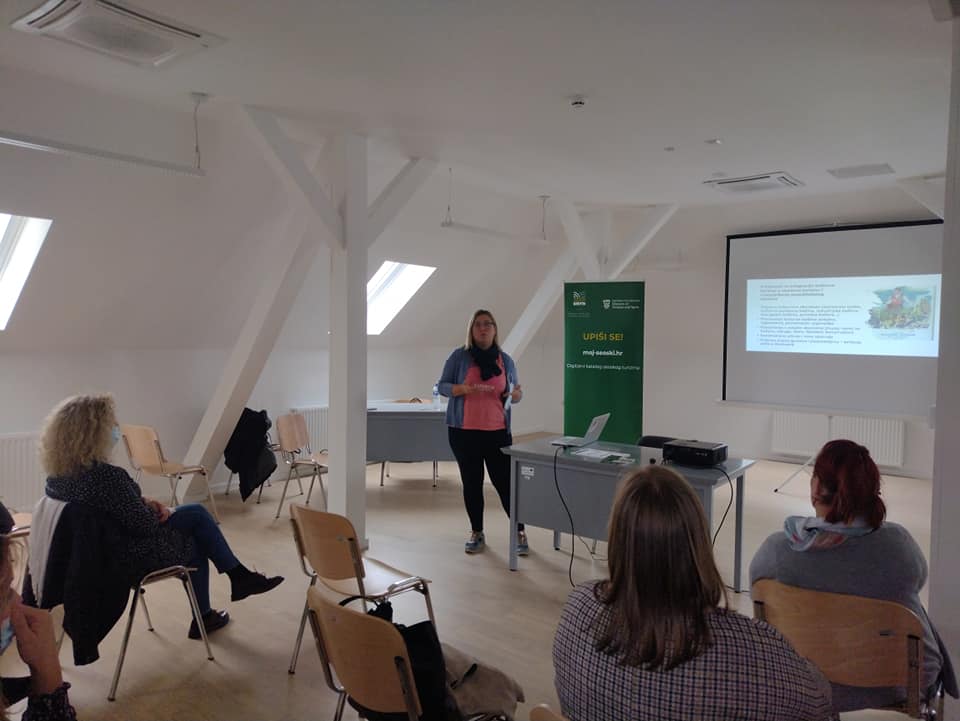 Photo from URTH workshop in Slatina
Photo from URTH workshop in Slatina
So far, we conducted 20 workshops in the regions of Central Croatia, Slavonia and Baranja, and Podunavlje. From next week until the end of the year, we will conduct the workshops in Istria, Kvarner, Lika and Dalmatia. Some service providers were not able to attend earlier workshops, because of work commitments of Covid. So, we decided to also offer access to the workshops online. Tomorrow is our first online workshop for Central Croatia and on Friday it's the online workshop for Slavonia.
These workshops are interactive discussions between our association, service providers and all other stakeholders. We discuss the legislative framework, which can be extremely complex. We talk about new trends in tourism for the post-pandemic era. We also discuss the importance of integrating cultural heritage in digital promotion.
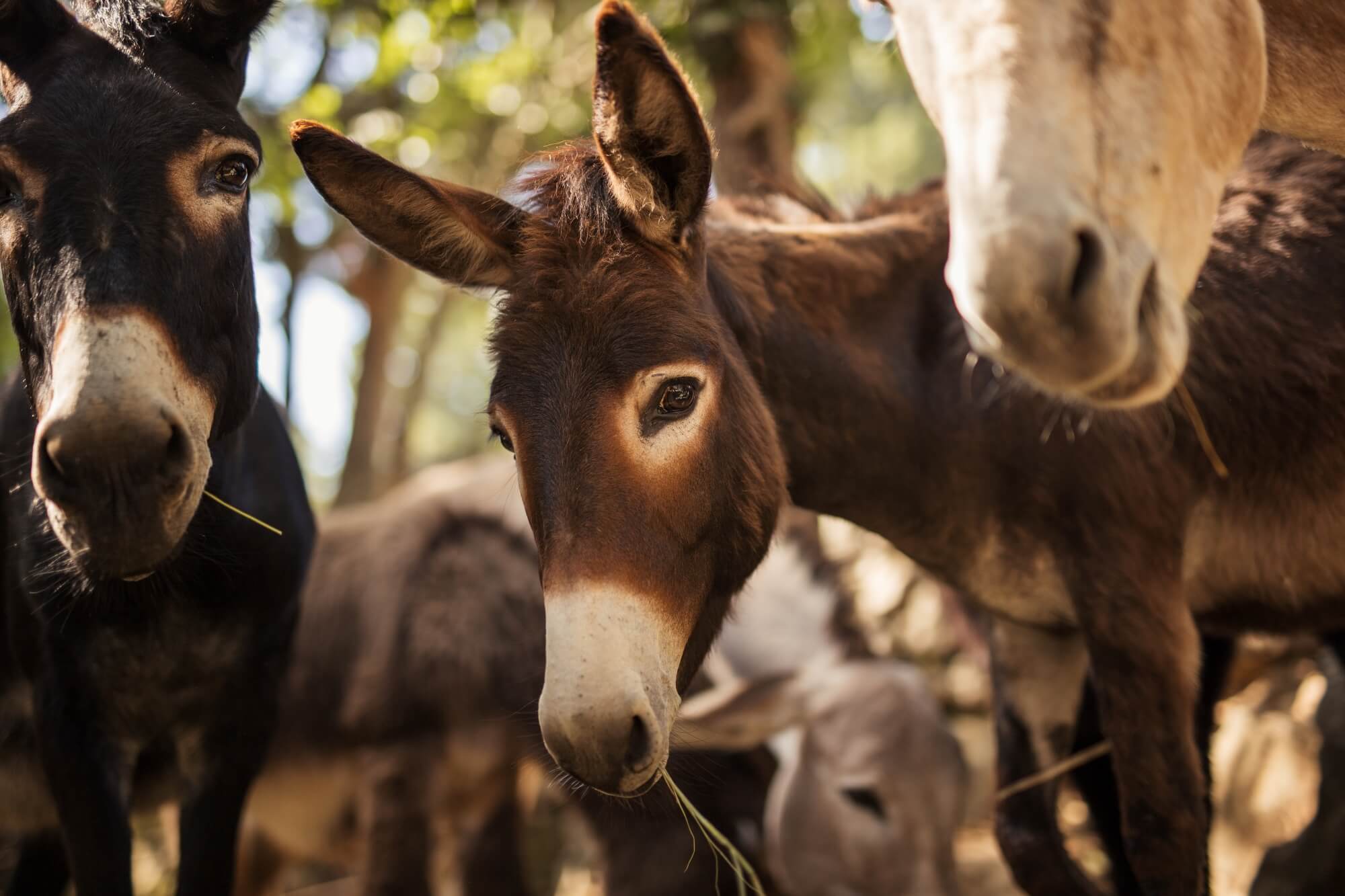 Donkey farm at Agroturizam Antunović on Pelješac
Donkey farm at Agroturizam Antunović on Pelješac
For the legislative framework, we have initiated the formation of a working group for the development of Seoski Tourism, which is now operating in the Croatian Ministry of Tourism and Sports. So, at the workshops, we ask if anyone is having issues. We collect the responses and address them in the working group.
Part of the workshop is the presentation of a new web application of Seoski Tourism, which we have developed with Croatian Ministry of Tourism and Sports. It has two purposes. One is to create a digital catalogue of Croatian Seoski Tourism. You can see region by region some of the Seoski Tourism options – currently around 40, those who have already enrolled.
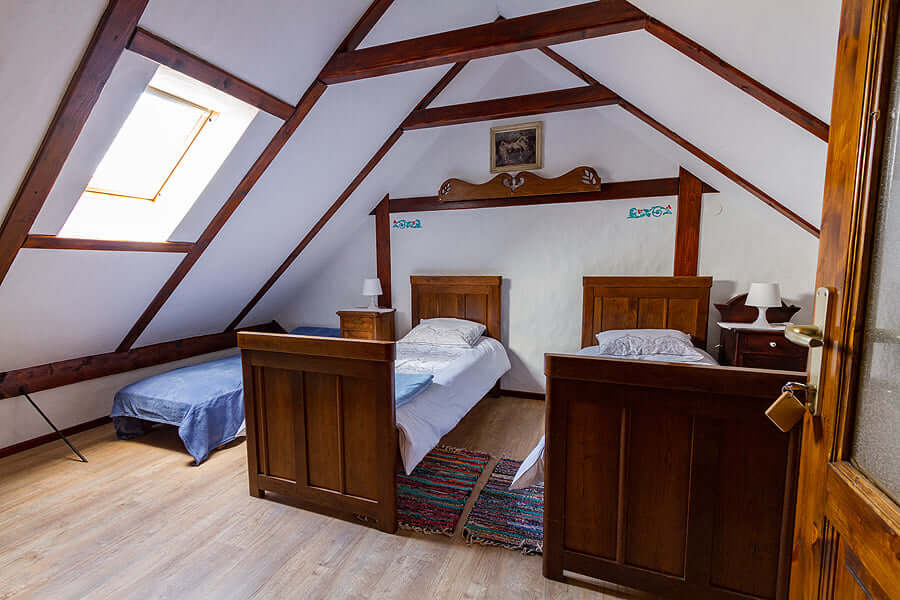 Podravina Etno rooms at Zlatni klas Otrovanec
Podravina Etno rooms at Zlatni klas Otrovanec
A version of the app is currently available on the website of the National Tourist Board. But, they are building a new website. The forthcoming version of the catalogue will likely be more user-friendly with many more functions and options. On the new website, Croatia's Seoski Tourism options will be detailed in many different languages. It should be a great resource not only for tourists but for travel agencies, journalists like you and for educational institutions. That's the reason we are devoting time in our workshops to encourage Seoski Tourism providers to enroll. We are just at the beginning of the process.
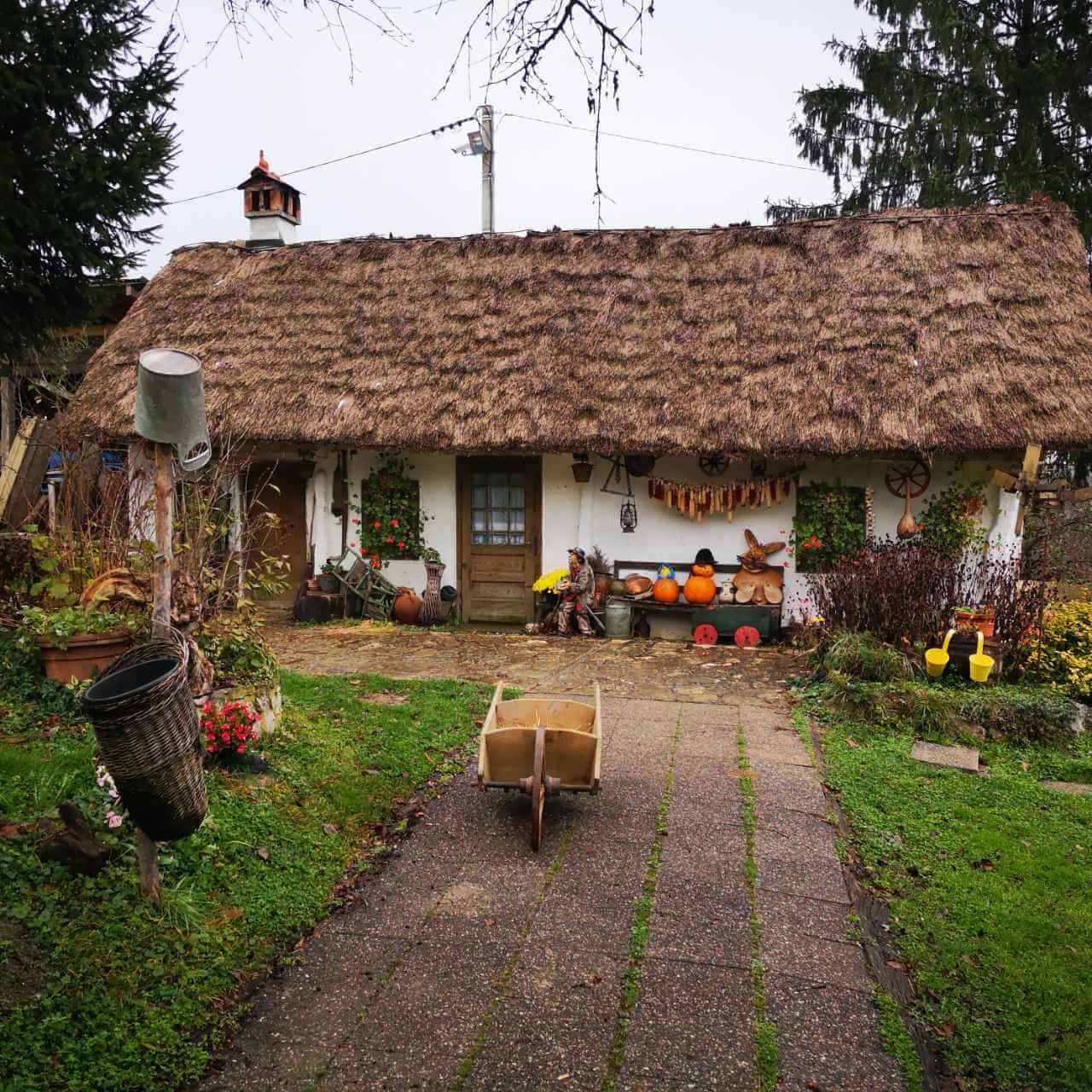 Grešna pilnica in Zagorje © Jasna Podboj
Grešna pilnica in Zagorje © Jasna Podboj
The second purpose of the app is to collect information about the service providers. This info will be used by our working group when defining a Croatian model of Seoski Tourism. So far, we have taken examples from Slovenia, Italy and other countries that are successful with Seoski Tourism. But, these models were entered into our legislative system without fully considering our distinct business and cultural environments. That is now about to change.
We are very happy that, following many years of partially successful advocacy, there is now political will at a ministerial level to really shape things up, to change the laws and regulations in order to facilitate Seoski Tourism. We want to encourage more Seoski Tourism, not to have people from agriculture being turned away because of the difficulty of the process and bureaucracy.
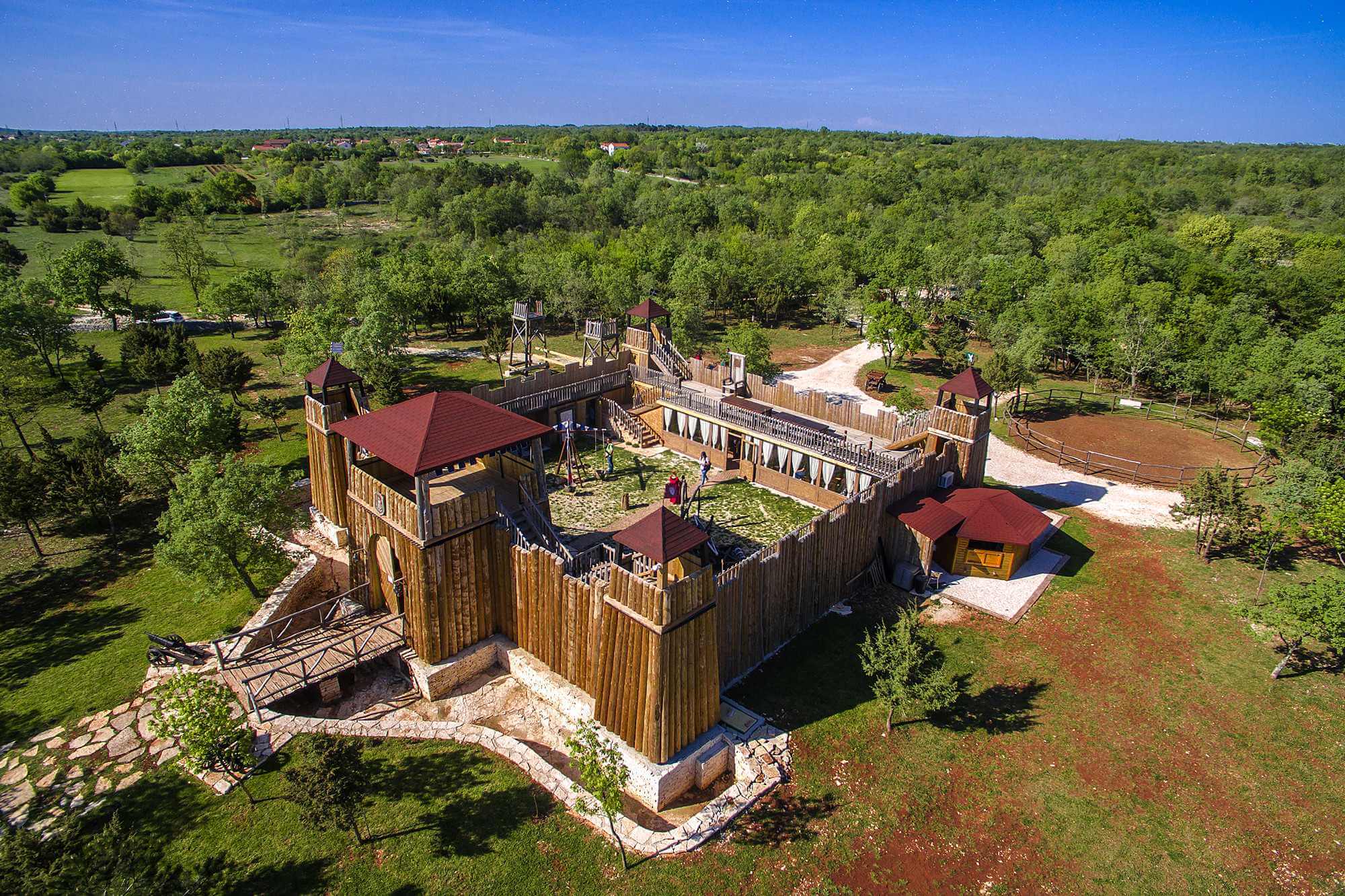 Medieval Theme Park San Michael © Silvia Otočan
Medieval Theme Park San Michael © Silvia Otočan
You said part of the workshops will focus on new trends. What are some of these?
Research has been done by a working group that is developing a new tourism strategy for Croatia. It's called Strategy for Sustainable Tourism to 2030. Under the auspices of this group, a number of research fields have been analysed.
The collected data shows that a huge percentage of tourists are now more inclined to eat locally grown and healthy food. They want to spend their time on estates that are run in accordance with ecological principles. So, they really care about issues like how waste is disposed of etc. They also pay a lot of attention to culture. They are curious to learn exactly how we are living, how we are working and how we produce things. They want to learn about our society and culture. And, importantly, they really care about how they spend their money. Above all, they want to spend money in areas that can help support local communities.
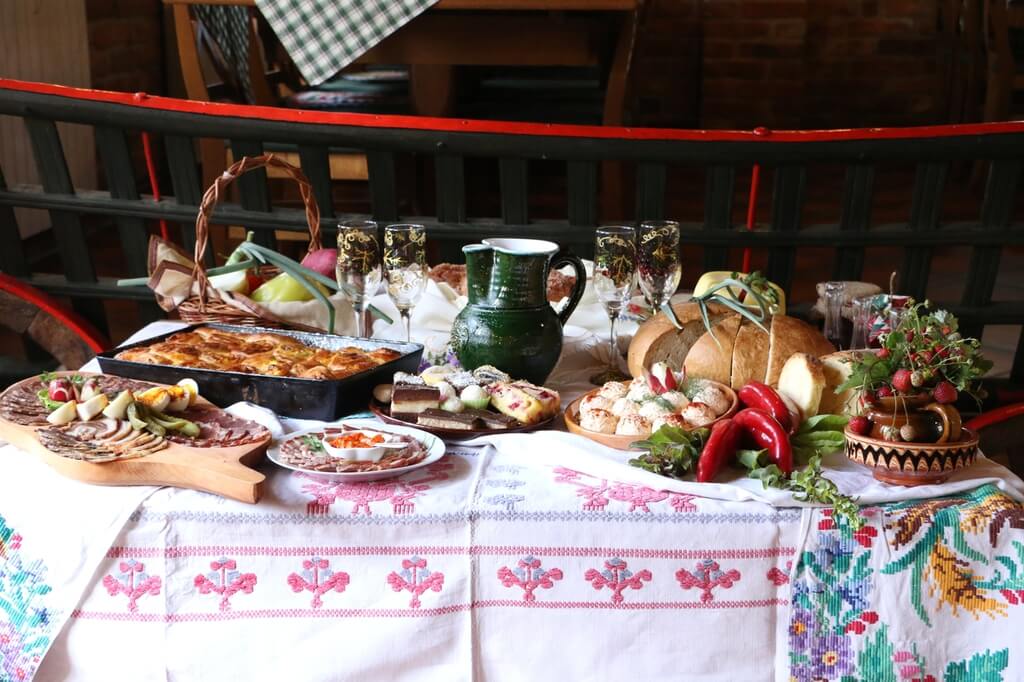 Prigorje Breakfast at Rakić Family Farm
Prigorje Breakfast at Rakić Family Farm
For us, this is really important. Because Seoski Tourism answers these demands to an incredibly high level. We do produce local, healthy food. Not only on the agricultural estates where you can experience Seoski Tourism, but also from their neighbours who just do agriculture. We are concerned with ecology, we protect cultural heritage and the money spent in Seoski Tourism stays in local communities, where it has very beneficial effects.
In the digital promotion part of the workshops we are trying to persuade people about the importance of their online presence. Basically, these days, if you're not online, it's almost like you don't exist. So, we try to explain the importance of having good-quality photos, short videos and a regular online presence.
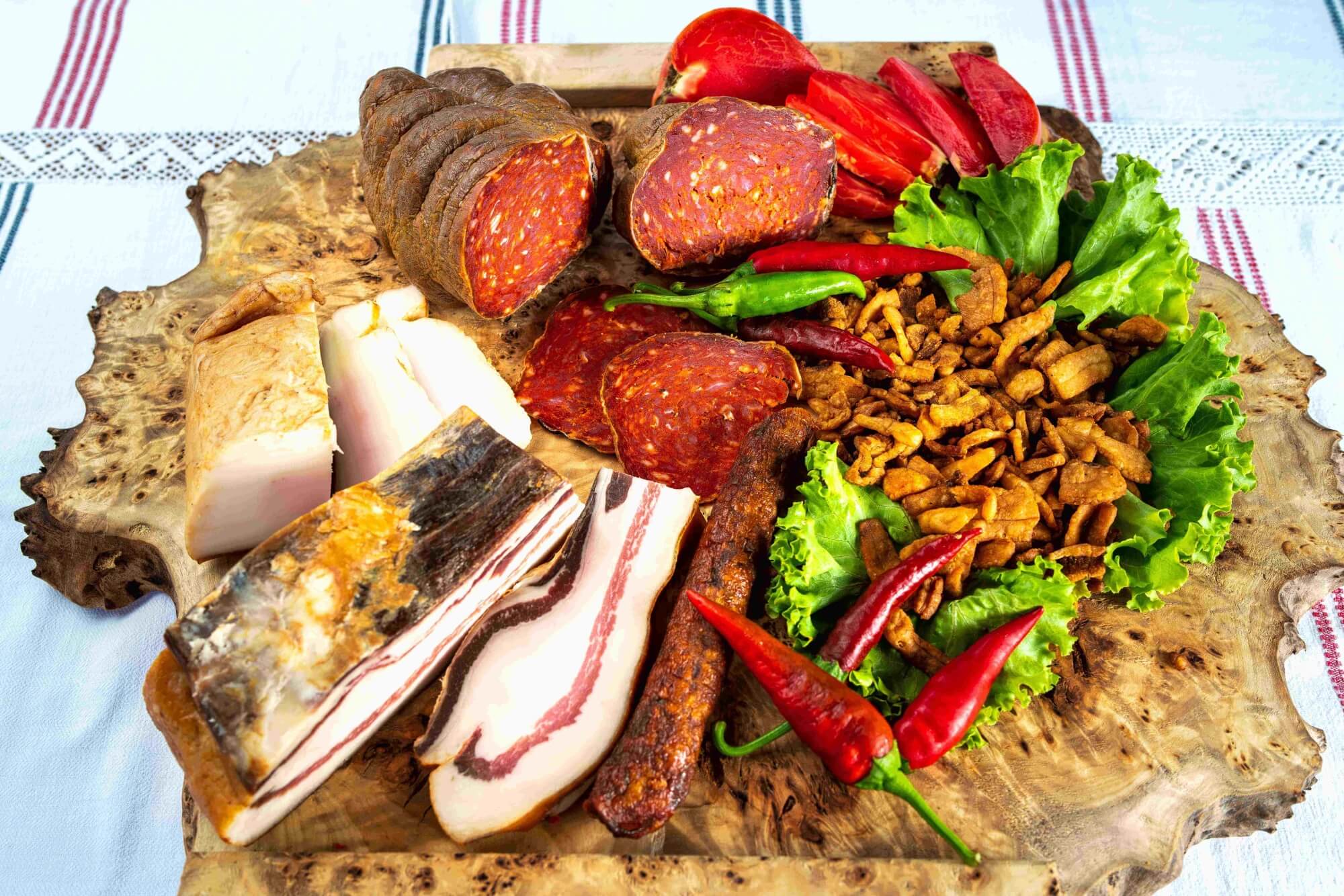 Kulen, čvarci and other specialties at Baranjska kuća © Denis Despot
Kulen, čvarci and other specialties at Baranjska kuća © Denis Despot
That's interesting. In some cases, it might be like two different worlds colliding - people who work in a traditional industry and a traditional environment having to adapt to a very modern way of operating. There's also another potential collision when providers learn of the expectations within modern tourism. Because these people can no longer just work in agriculture. To operate in Seoski Tourism, you're also very much expected to also be a host.
Yes. All of our current service providers who are successful within Seoski Tourism are also great hosts. It's essential. You can see it in almost all of the reviews for this kind of tourism. Guests come for the food and drinks and surroundings, yes. But, what they value the most, what they remember the most, is the host part of the experience. On the estates of Croatian Seoski Tourism, guests are welcomed like family. Across all of Croatian tourism we are expected to be good hosts. It's part of our reputation and the reason why many people come here from all over the world. In Seoski Tourism, it is vital we live up to those expectations.
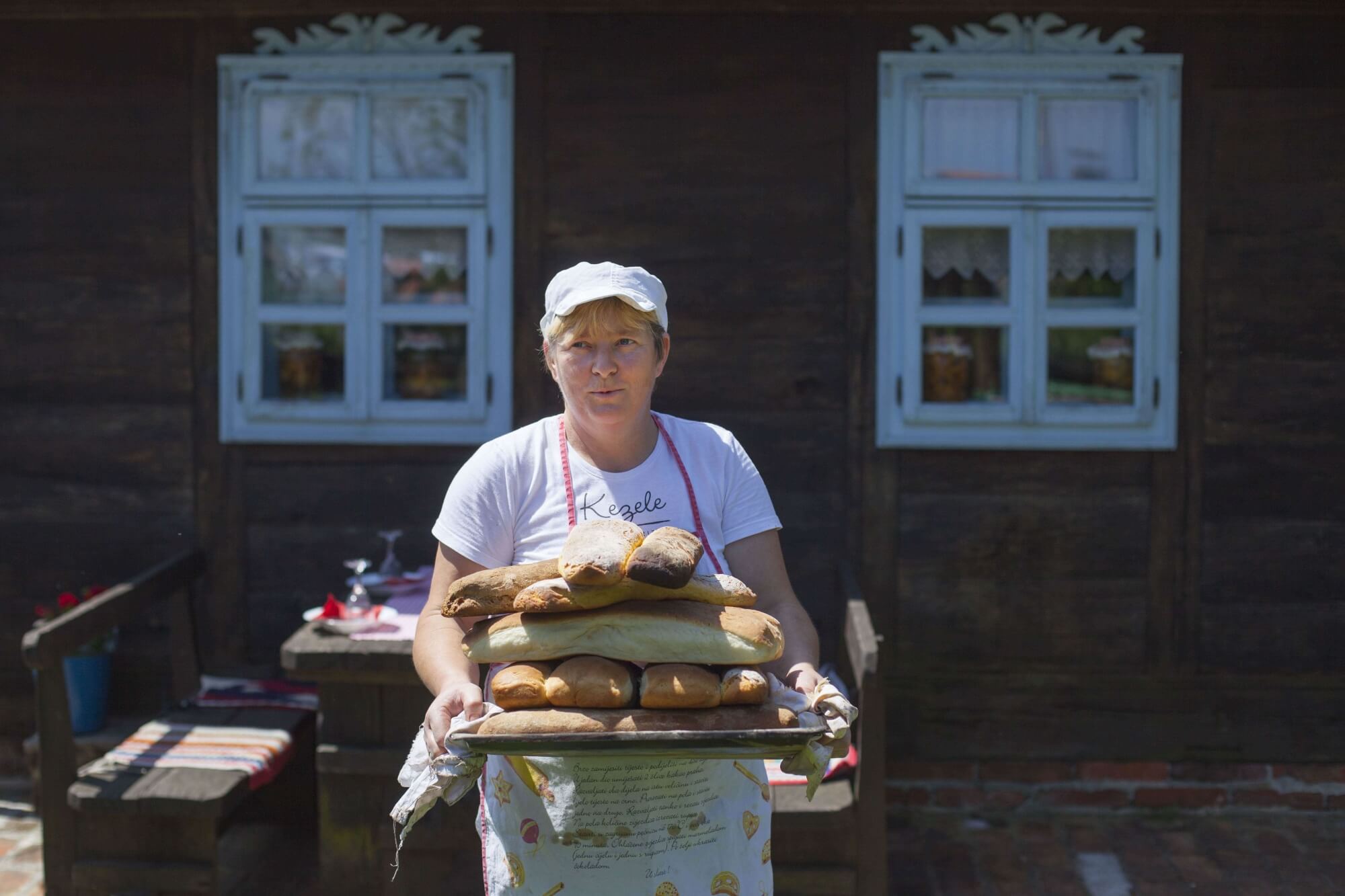 Kezele family farm © Davor Konjikušić
Kezele family farm © Davor Konjikušić
Another aspect of this, which is a more recently-observed element, is that visitors often want an insight into the actual lives, even the personalities of their hosts. They want not only to taste the homemade sausages you make, but they also want to know how you do it, where you do it, how you learned to do that. When they go to Spain, they want to know how the people there make their wine. And, when they come to Croatia, they want to learn how we do it here.
So, all in all, those of us in Seoski Tourism are really busy. We are in agriculture, yes, but we are also in tourism and we are also online. With this more recently-observed aspect, we will need to try and devote even more time to our hosting. It can be difficult to balance the demands on your time. But, in our workshops, we are trying to persuade people to talk more about themselves, their lives, their cultural heritage. And, if there isn't time to do everything themselves, then to involve different and often younger generations of the family. Sometimes within the hosting or alternatively just with the online promotion and presence.
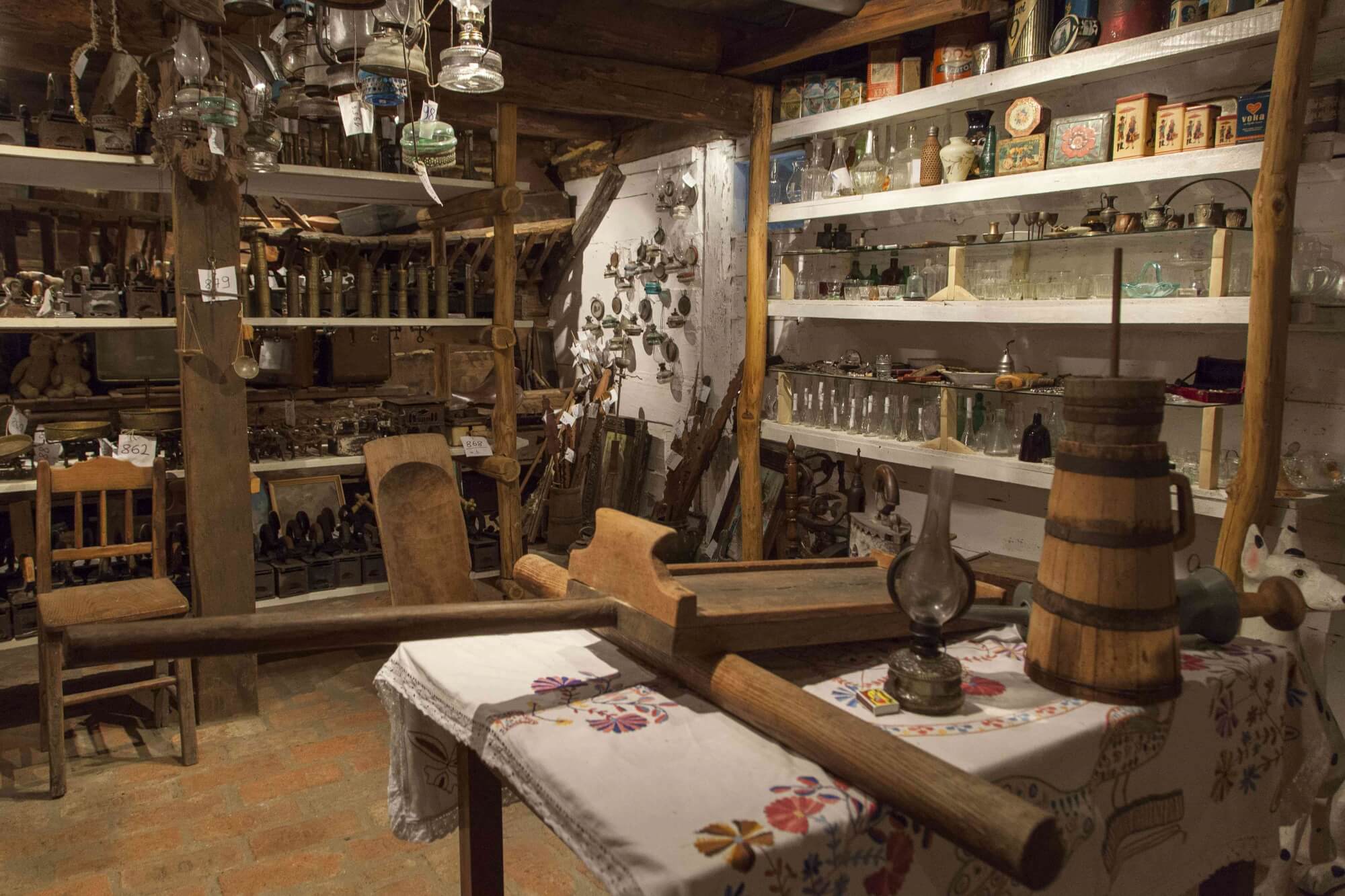 Kezele family farm ethno collection © Davor Konjikušić
Kezele family farm ethno collection © Davor Konjikušić
I've visited some family farms that were right at the start of their journey with Seoski Tourism and they seemed surprised that I was at all interested in what they do and how they do it. I think maybe they thought I was a bit crazy.
Yes, that is a response we sometimes also see at first. I think it's because our generation takes a lot of things for granted. We sometimes think that what we do is just what we do. We are not so good at showcasing it. “Why would I show someone how I make my cheese? I make my cheese like my grandmother used to make it” But, for those who open their doors to Seoski Tourism, inquiries about how they do what they do are only increasing. So, they seem to appreciate how we advise them in the workshops.
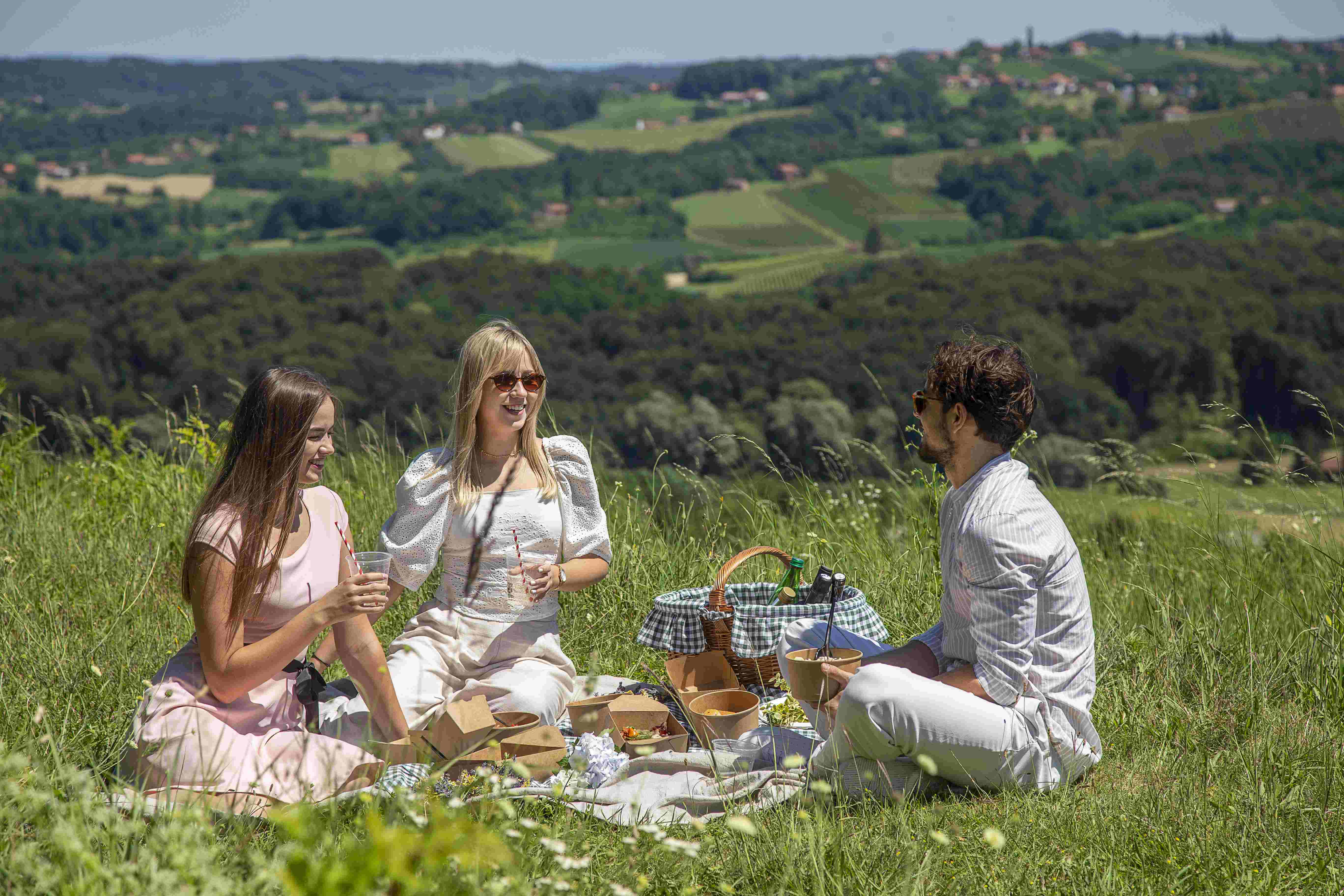 Picnic by Restaurant Međimurski dvori © Igor Nobilo
Picnic by Restaurant Međimurski dvori © Igor Nobilo
We are trying to let our producers know that Seoski Tourism is not just a platform to sell their produce and an overnight stay, but it's a full experience they can sell. There are agricultural farms in Austria that are established in tourism that you must pay only to visit. Of course, that doesn't happen currently anywhere in Croatia, even though some of our Seoski Tourism estates have sections that look like museums.
Some of these aspects are very new. And the feedback is great. I truly believe there are hidden treasures to be discovered in some Croatian villages. We are here to tell that story.
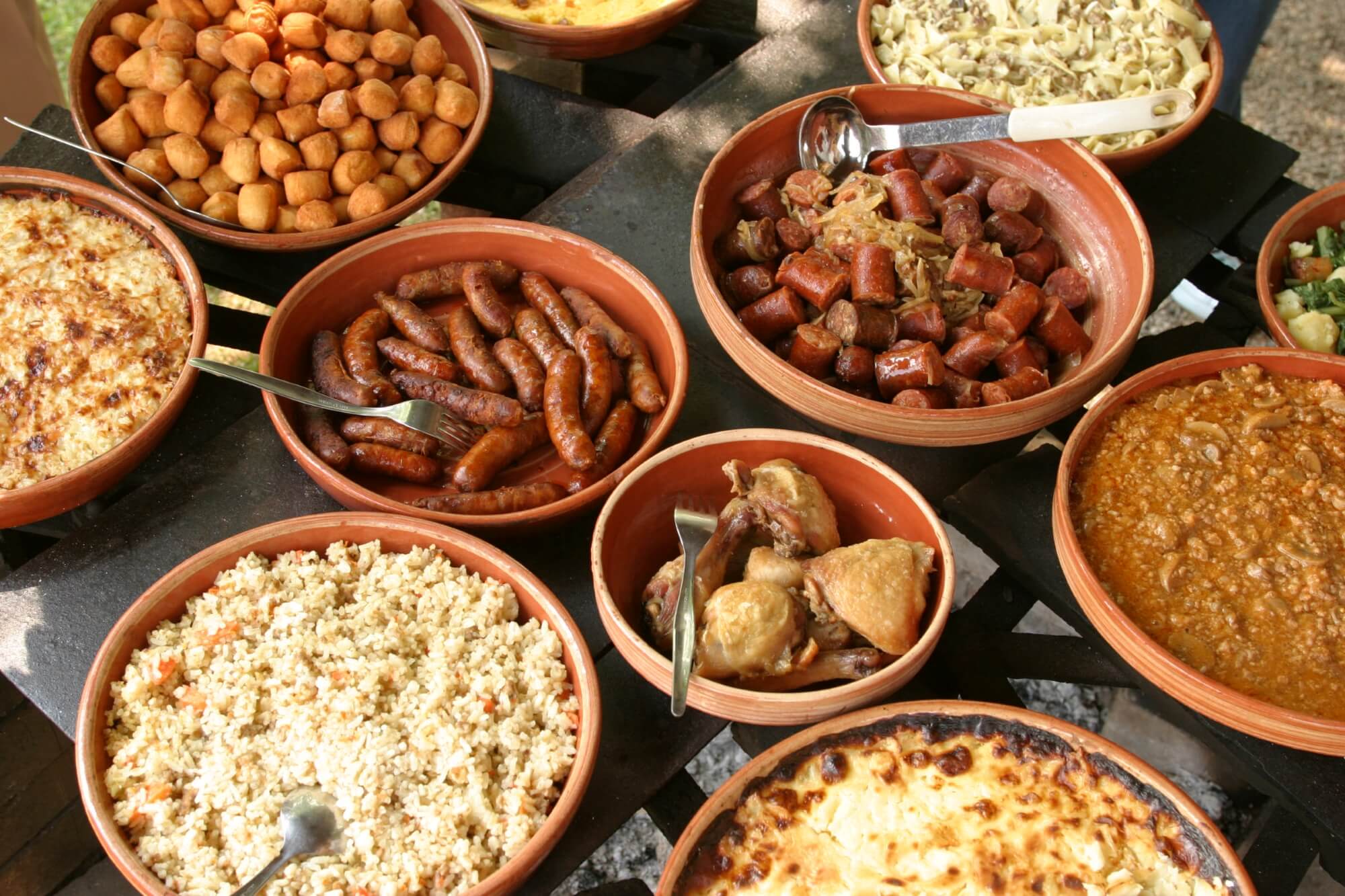 Selection of food from a Slavonian village © Mario Romulić
Selection of food from a Slavonian village © Mario Romulić
What is so rewarding about Croatian Seoski Tourism that international visitors would want to go to a traditional farm in some inland village instead of lying on the beach in Dalmatia for 14 days?
People come because they really want to see a different side of Croatia. And, there are many different aspects of Croatia to discover – not just Seoski Tourism, but also National Parks and Nature Parks. All of our current trends show us that more and more tourists are willing to come inland from the coast or to explore a different part of Croatia – inland Istria, for example, or continental Croatia.
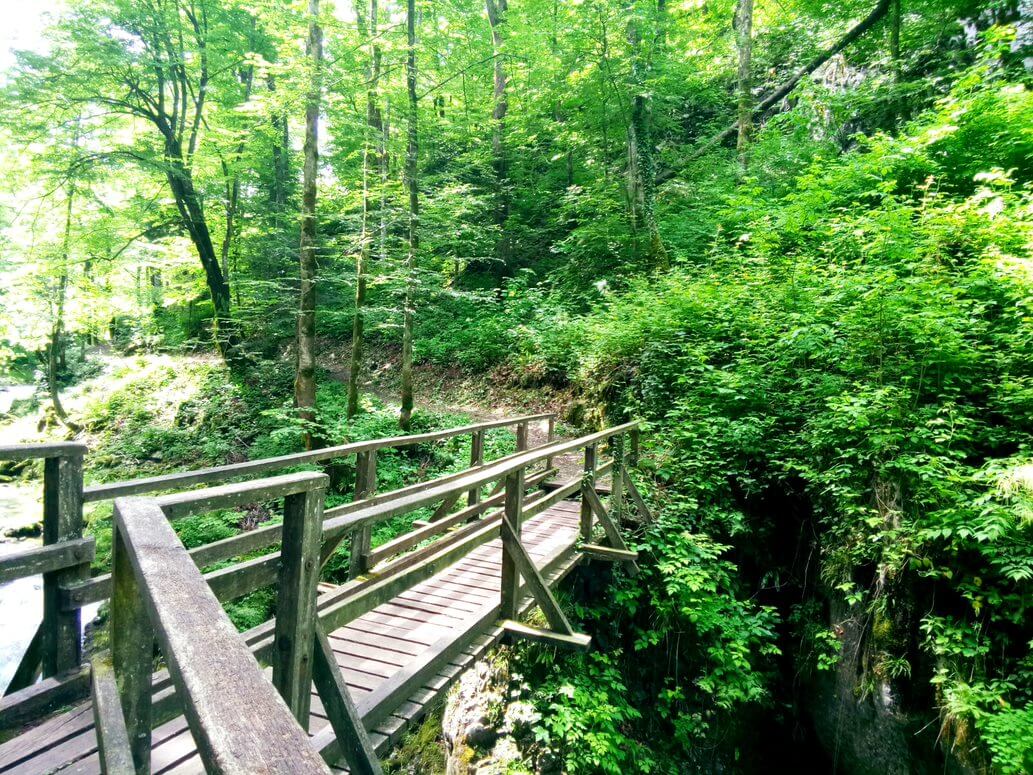 Kamačnik river canyon © Aleksandra Kuratko Pani
Kamačnik river canyon © Aleksandra Kuratko Pani
They really want to try authentic, local food. They want to eat healthy, to know what they are eating and how it is made. And, they want to experience flavours that are different from the usual ones they get from the supermarket.
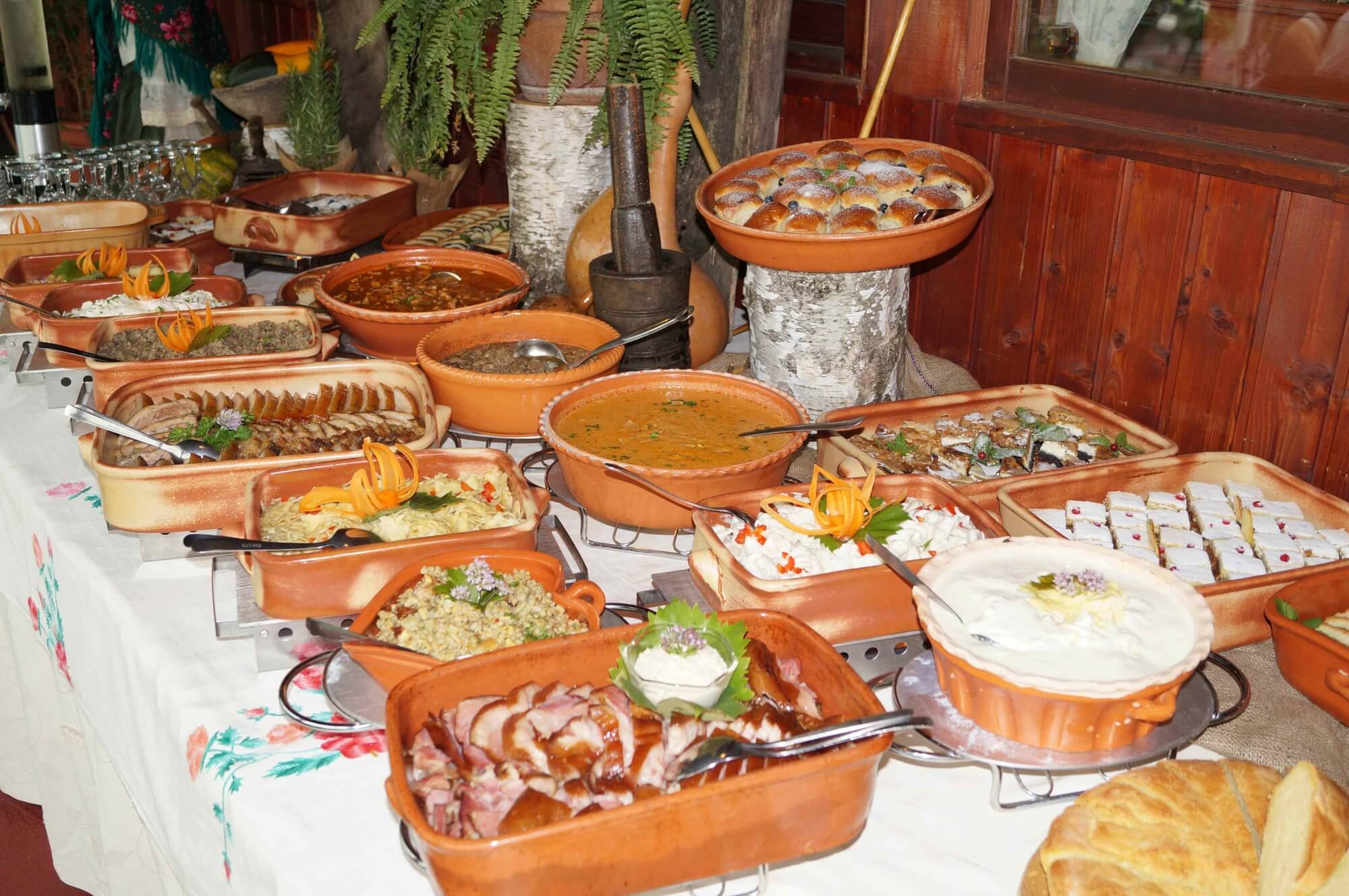 Traditional Međimurje table at Etno restaurant Međimurski dvori
Traditional Međimurje table at Etno restaurant Međimurski dvori
Also, I would say that with Seoski Tourism, people get to know better an authentic version of Croatia and its culture. It's a story we hear very often from our members. Some of them are visited by large groups from cruisers. These are people who might be on a cruise on the Adriatic and who journey inland for a day trip. Or, it might be a group who are cruising the Danube and disembark to visit a family farm in Slavonia, Baranja or Srijem.
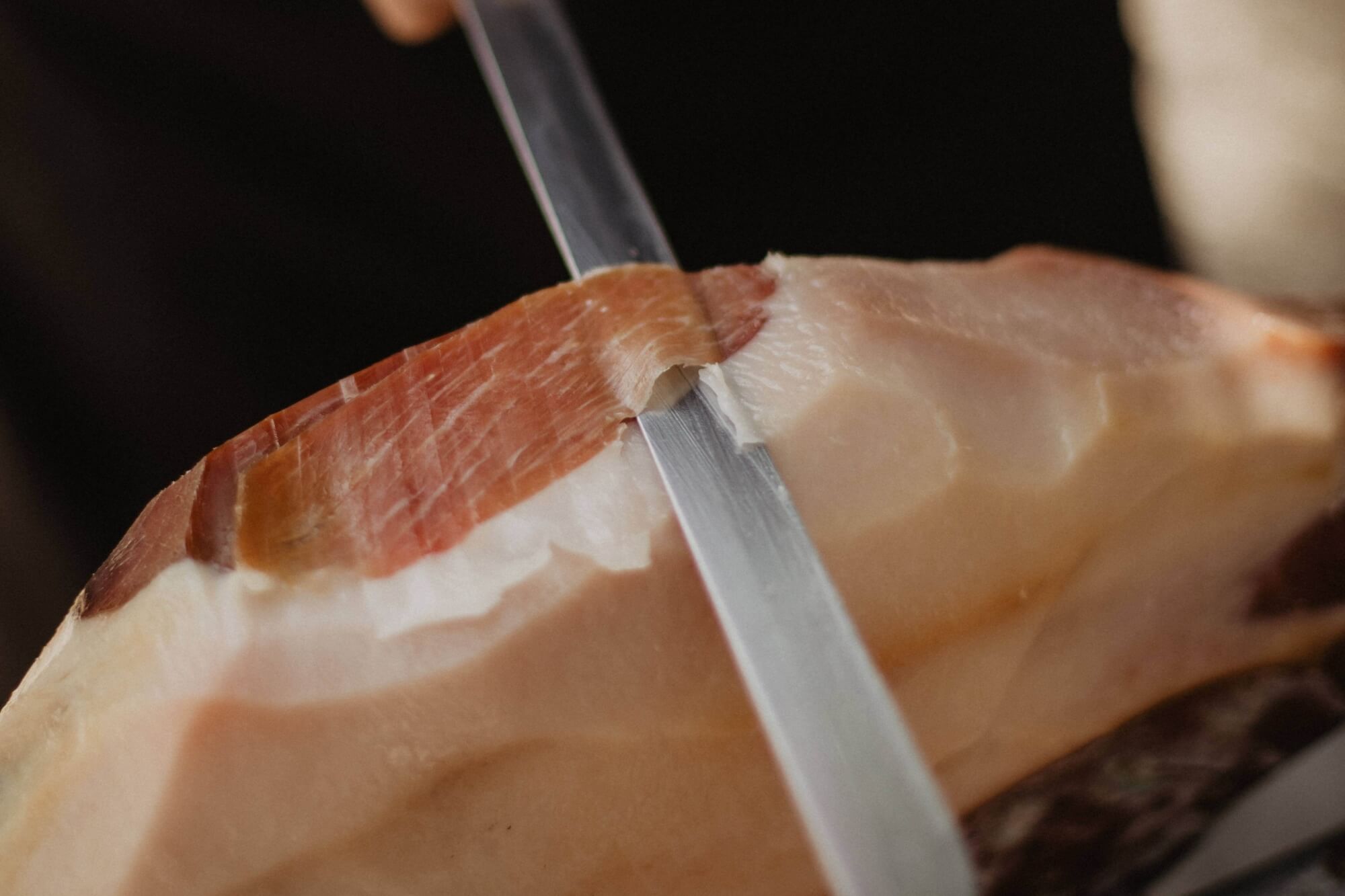 Prosciutto from Drniš at Agrotourism Kalpić © Ivana Kalpić
Prosciutto from Drniš at Agrotourism Kalpić © Ivana Kalpić
When they visit farming estates on day trips, it's very often a huge 'wow' moment for them. For many, in their minds, Croatia is simply sun and sea. And that's not entirely their fault. We, as a country, have done very little until now to promote alternative sides of Croatia. The visitors experience these wow moments because of the hospitality they receive and because of the tangible aspect of the visit. This is a modern aspect – people want to touch things, know how things feel, taste, smell. They want to ride on horses or feed them. Or take part in cultural activities. These parts of a visit to Seoski Tourism are very difficult to experience anywhere else.
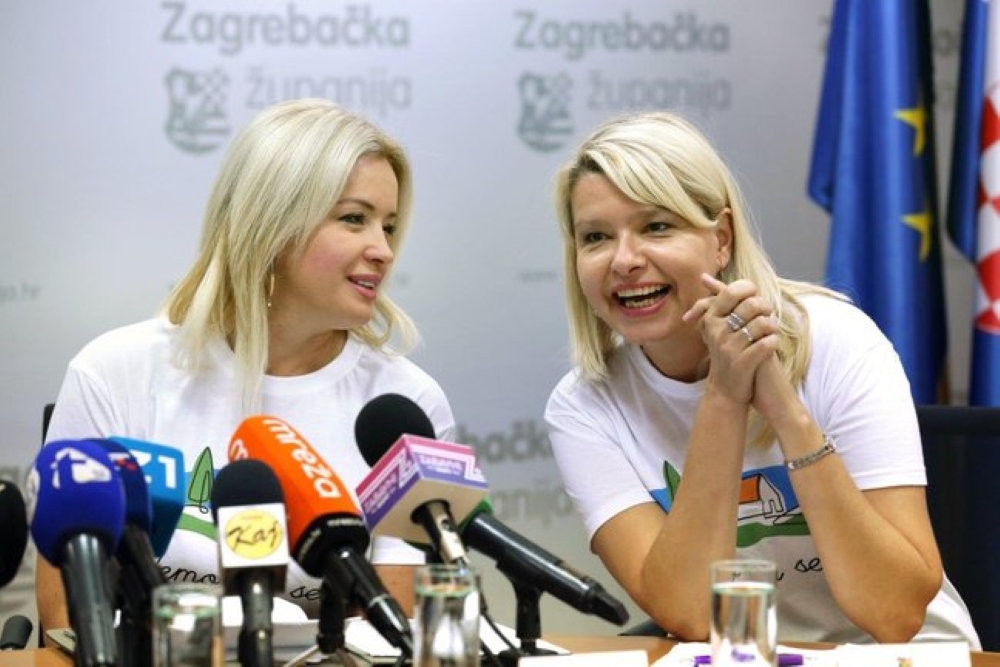 (left) Ivana Alilović, director of Zagreb County Tourist Board (right) Aleksandra Kuratko, secretary of Udruga ruralnog turizma Hrvatske (Croatian Rural Tourism Association) © Zagreb County
(left) Ivana Alilović, director of Zagreb County Tourist Board (right) Aleksandra Kuratko, secretary of Udruga ruralnog turizma Hrvatske (Croatian Rural Tourism Association) © Zagreb County
Udruga ruralnog turizma Hrvatske's online Seoski Tourism workshops begin today and their physical workshops continue next week in Istria.
If you'd like to read more about rural tourism in Croatia, then look here
Strategy Envisages €7.5 Billion of Investments in Agriculture in Next 10 Years
ZAGREB, 16 Oct, 2021 - Agriculture and the energy industry are the two main sectors enabling each society and state to function normally, and therefore in the next decade, €7.5 billion will be invested in the agricultural sector, Prime Minister Andrej Plenković said in Zagreb on Saturday.
Addressing an Agriculture Ministry event dedicated to promoting farming, fisheries and forestry, the Prime Minister said that his cabinet spared no effort to help agricultural producers, the food and timber industries and the fisheries.
The government has sent to the parliament a draft strategy on agriculture, and the document, which should be adopted this year, envisages investments in agriculture of some €7.5 billion in the next decade, which should help the Croatian agricultural sector to reach the target of HRK 30 billion (€4 billion) of annual production.
During the term of this government, over a score of state aid schemes have been designed and mostly implemented, and their value is estimated at €253 million, provided from the state budget, Plenković said, recalling prompt interventions to address market disruptions caused by the coronavirus crisis and natural disasters.
In the livestock sector, nine measures and schemes are being implemented in response to problems caused by the COVID-19 crisis, and HRK 450 million has been made available as part of the government's aid schemes, he said, adding that an HRK 163.5 million scheme is in the pipeline to help businesses affected by fodder price rises.
From 2016 to 2019, state grants amounted to HRK 11.1 billion, and in 2020, HRK 3.2 billion was disbursed as state aid, the PM said.
The Rural Development Programme has made HRK 22.8 billion available to beneficiaries, and of that amount 18 billion has been contracted, and 13.8 billion has been disbursed for investments in agriculture, the PM told the event.
The fisheries branch has been provided with HRK 2.3 billion in grants within the Operational Programme for Maritime Affairs and Fisheries, and to date more than 1.2 billion has been disbursed.
Plenković went on to say that the government has increased outlays for investments in food safety and the National Recovery and Resilience Plan envisages the provision of infrastructure for a food bank and for participants in the food donation chain. This is one of the important reforms, worth HRK 32 million, he said.
Agriculture Minister Marija Vučković said that the aim of the strategy would be to increase the output in the agricultural sector to HRK 30 billion annually until 2030.
The implementation of the strategy will require €7.5 billion, and the government plans allocations for this purpose in the amount of five billion euros until 2027 through the multiannual financial framework, the National Recovery and Resilience Plan and the state budget, she explained.
(€1 = HRK 7.5)
For more on business, follow TCN's dedicated page.
For more about Croatia, CLICK HERE.
Podravka Gets HRK 5.16m Grant For Its Future Solar Power Plant
ZAGREB, 1 June, 2021 - Podravka's project of a solar power plant, worth HRK 10.3 million, will be co-funded with a HRK 5.2 million grant by the European Union and the Croatian government under the Rural Development Programme, the Koprivnica-based food factory reported on Tuesday.
"The grant was awarded by the Ministry of Agriculture pursuant to a decision by the Agency for Payments in Agriculture, Fisheries and Rural Development, and pursuant to Podravka's application for implementation of the Sub-measure 4.2 'Support for investments in the processing, marketing and/or development of agricultural products' and implementation of operation type 4.2.2. 'Use of renewable energy sources'," the company said.
The expected period for return on investment with 50% support is 3.5 years.
The investment is valued at HRK 11.7 million, of which HRK 10.3 million is to be used for the construction of the solar power plant, while HRK 1.4 will be spent on the development of the measurement facility and the necessary transformer station.
"Podravka – Danica" 2.4 MW solar power plant is to be built at the Danica Industrial Zone in Koprivnica.
(€1= HRK 7.5)
For more about business in Croatia, follow TCN's dedicated page.
Agriculture Minister Marija Vučković Delivers Three Rural Development Programme Contracts
ZAGREB, 9 April, 2021 - Agriculture Minister Marija Vučković on Friday presented three contracts from the Rural Development Programme worth HRK 8.5 million to beneficiaries in Jarmina municipality in eastern Croatia.
She also attended the opening of "Jarmina", the first kindergarten in the municipality in which HRK 7 million was invested from EU funds and her ministry's Rural Development Programme. It will be attended by 75 children.
Vučković told the press this was the 12th kindergarten in Vukovar-Srijem County built with funds from the Rural Development Programme, for which HRK 56 million was ensured, adding that 200 kindergartens would be opened in Croatia thanks to over HRK 1 billion from the programme.
The 12 kindergartens have been opened in communities with a population of below 5,000.
Vučković said kindergartens were important for keeping young families in villages, adding that her ministry would soon advertise calls for the construction of more kindergartens, farmers' markets, firehouses and community culture centres.
Last year the Croatian EU presidency secured the support of the member states for a transitional regulation to enable continuity of financing until "the whole common agricultural policy reform is adopted," the minister said, adding that the reconstruction and construction of the social infrastructure in rural areas would continue.
Over €5 billion for Croatian agriculture
Vučković announced that Croatia would receive over €5 billion for agriculture in the EU's 2021-27 budget.
She said 12.9% of Croatian farmers and over 20% in Vukovar-Srijem County were under 41.
(€1 = HRK 7.5)
For more about politics in Croatia, follow TCN's dedicated page.
39 New Subsidy Agreements Valued at HRK 42 mn Sent to Farmers
ZAGREB, November 20, 2020 - The Paying Agency for Agriculture, Fisheries and Rural Development has sent 29 new agreements to farmers around Croatia related to two measures from the Rural Development Programme for an acceptable investment amount of almost HRK 90 million, for which HRK 42 million has been secured in subsidies.
The Ministry of Agriculture said in a press release that 20 agreements relate to cattle breeding with subsidies valued at HRK 33.5 million, while the total acceptable amount of investments amounts to more than HRK 71 million.
Nine agreements for which subsidies valued at HRK 8.6 million have been made available relate to managing and handling organic fertiliser, while the value of the total investments amounts to HRK 18.6 million.
Projects submitted for support under operations 4.1.1. and 4.1.2 of the Rural Development Programme can amount to €500,000 (HRK 3.75 million) and €300,000 (HRK 2.25 million) respectively, with subsidies covering 50% of the acceptable costs.
HBOR: 130 Million Kuna Working Capital for Rural Development Secured
As Novac writes on the 29th of May, 2020, the Ministry of Agriculture and HBOR have prepared a new financial instrument called ''working capital for rural development", for which 130 million kuna has been provided, and loans will be approved directly by HBOR, with an interest rate of 0.5 percent, while users will be exempt from having to pay all fees.
This is a new programme for lending liquidity to farmers and processors of agricultural products and entities operating in the forestry sector whose business is being negatively affected by the ongoing coronavirus pandemic, the Ministry of Agriculture and the Croatian Bank for Reconstruction and Development (HBOR) point out in their separate statements.
These loans will be approved directly by HBOR at a welcome interest rate of 0.5 percent, and loan users are exempt from needing to pay all fees normally charged upon approval (for example, fees for processing a loan application, for reserving funds, etc) as well as fees for the alteration of credit conditions, including early loan repayment fees.
Loan applications will be able to be submitted to HBOR as of Monday, June the 1st, 2020. The minimum loan amount stands at 190,000 kuna and the maximum is 1.52 million kuna.
These funds are approved for a period of up to five years (including a grace period of up to twelve months), or up to three years (including a grace period of up to six months) for loans in the amount of 760 thousand kuna or less.
The Ministry of Agriculture has pointed out that this new instrument will provide liquidity in the agricultural production, processing and forestry sectors in the short term, and also work to further encourage recovery after the public health crisis caused by the COVID-19 pandemic.
The funds will be able to be used to finance employee salaries, overheads and other basic operating costs, the procurement of raw materials and the settlement of liabilities to suppliers and other current operating costs. The funds cannot be used to settle existing credit obligations to commercial banks and other financial institutions, HBOR noted.
The total amount of funds intended for these loans amounts to the aforementioned 130 million kuna, and is provided by the conversion of part of another financial instrument called "investment loans for rural development" into the new financial instrument called ''working capital for rural development".
Loan applications will be being received until December the 31st, 2020, or until the total amount of available funds are used up, according to a statement from the competent ministry and from HBOR.
For more, follow our business page.


